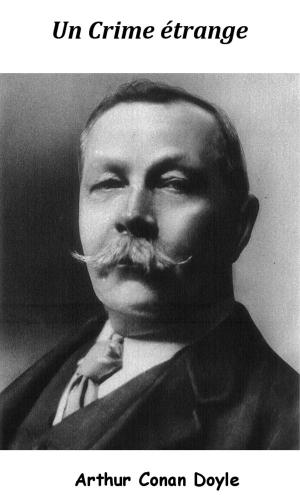| Author: | Jane Seaford | ISBN: | 9780473373245 |
| Publisher: | Jane Seaford | Publication: | November 23, 2016 |
| Imprint: | Smashwords Edition | Language: | English |
| Author: | Jane Seaford |
| ISBN: | 9780473373245 |
| Publisher: | Jane Seaford |
| Publication: | November 23, 2016 |
| Imprint: | Smashwords Edition |
| Language: | English |
‘Dead is Dead’ is a collection of twenty compelling stories which focus on the complexity of being human. All of the stories have already met with success: broadcast, appearing in magazines or doing well in international competitions.
The title story, Dead is Dead, is set in colonial Africa and is told from the point of view of a little girl. Her father’s gun goes missing and so does one of the servants. Events unfold and end in tragedy, and in the little girl coming to a new understanding.
In ‘This is not Miranda’s story’ a woman observes her neighbour’s wife becoming a mother and, at the same time, sliding into madness. Here’s a small section from it: ‘Tim came round the next Saturday. He brought the big pram with the baby at one end and Hayden at the other. When I asked how Miranda was, he said, “She’s convinced that this little one is a daughter, although it’s obvious he’s not. She calls him Eve.”’
‘The Sleeping Handsome’ retells the story of ‘The Sleeping Beauty’ but with a male sleeper and set in modern times.
‘My Beautiful Dad’ is written from the point of view of the son of a man who is becoming a woman. Finally the boy meets the woman his father has become: ‘I push open the door to the café and there is ‘Rosalie; quite beautiful, long blonde hair, long slender legs elegantly crossed. She wears earrings that hang almost to her shoulders, silver bangles on each smooth arm, a short skirt, high-heeled shoes, a lacy blouse buttoned up to her cleavage, the hint of breasts. She holds her hand there, the long fingers fiddling with the top button, wanting to undo it .’
Matilda is dealing with writing a philosophical essay on the subject of free will and determinism, it is also her birthday and her mother, with whom she does not get on, is coming to stay, next door there is building work going on and bones are discovered. These are the themes for ‘Matilda, the Determined Woman’.
‘Polly’s Day’ is about the awfulness of war for the families whose men have gone to fight. It is set during the Second World War with flashbacks to the first. Here’s a section from one of those flashbacks: ‘Mum was in the kitchen. She was crying like she had been on the way to school, only worse. Gran looked up as Polly came in; her eyes were red and her face all wobbly. But it was Uncle Artie who said it, ‘Your dad’s dead. Killed. In action.’
‘When Mum came in from the bedroom, she had pink cream on her face but you could still see the other colours underneath, especially just below one eyebrow where there was a rim of black coming through. Her lips looked sore, too, swollen and bitten and when she yawned, it was almost as if she was trying not to cry. She walked through to the kitchen end of the living room.’ This is the opening to ‘One of Those Days’ a horrific story about a dysfunctional family, a battered wife and mistreated children.
In ‘Dead Heading the Roses’ the narrator is dealing with an unwanted pregnancy and the request from her neighbour’s son, who has become a paraplegic, for her to help him die. It starts like this: ‘Three years ago, Dylan, who lives next door, slid off the roof. The fall didn’t kill him but now he is unable to walk or talk. He communicates by blinking. One for no, two for yes, several when the right questions aren’t being asked.’
And there are plenty more stories, all gripping, all beautifully written and insightful, all of which will leave readers wanting more.
‘Dead is Dead’ is a collection of twenty compelling stories which focus on the complexity of being human. All of the stories have already met with success: broadcast, appearing in magazines or doing well in international competitions.
The title story, Dead is Dead, is set in colonial Africa and is told from the point of view of a little girl. Her father’s gun goes missing and so does one of the servants. Events unfold and end in tragedy, and in the little girl coming to a new understanding.
In ‘This is not Miranda’s story’ a woman observes her neighbour’s wife becoming a mother and, at the same time, sliding into madness. Here’s a small section from it: ‘Tim came round the next Saturday. He brought the big pram with the baby at one end and Hayden at the other. When I asked how Miranda was, he said, “She’s convinced that this little one is a daughter, although it’s obvious he’s not. She calls him Eve.”’
‘The Sleeping Handsome’ retells the story of ‘The Sleeping Beauty’ but with a male sleeper and set in modern times.
‘My Beautiful Dad’ is written from the point of view of the son of a man who is becoming a woman. Finally the boy meets the woman his father has become: ‘I push open the door to the café and there is ‘Rosalie; quite beautiful, long blonde hair, long slender legs elegantly crossed. She wears earrings that hang almost to her shoulders, silver bangles on each smooth arm, a short skirt, high-heeled shoes, a lacy blouse buttoned up to her cleavage, the hint of breasts. She holds her hand there, the long fingers fiddling with the top button, wanting to undo it .’
Matilda is dealing with writing a philosophical essay on the subject of free will and determinism, it is also her birthday and her mother, with whom she does not get on, is coming to stay, next door there is building work going on and bones are discovered. These are the themes for ‘Matilda, the Determined Woman’.
‘Polly’s Day’ is about the awfulness of war for the families whose men have gone to fight. It is set during the Second World War with flashbacks to the first. Here’s a section from one of those flashbacks: ‘Mum was in the kitchen. She was crying like she had been on the way to school, only worse. Gran looked up as Polly came in; her eyes were red and her face all wobbly. But it was Uncle Artie who said it, ‘Your dad’s dead. Killed. In action.’
‘When Mum came in from the bedroom, she had pink cream on her face but you could still see the other colours underneath, especially just below one eyebrow where there was a rim of black coming through. Her lips looked sore, too, swollen and bitten and when she yawned, it was almost as if she was trying not to cry. She walked through to the kitchen end of the living room.’ This is the opening to ‘One of Those Days’ a horrific story about a dysfunctional family, a battered wife and mistreated children.
In ‘Dead Heading the Roses’ the narrator is dealing with an unwanted pregnancy and the request from her neighbour’s son, who has become a paraplegic, for her to help him die. It starts like this: ‘Three years ago, Dylan, who lives next door, slid off the roof. The fall didn’t kill him but now he is unable to walk or talk. He communicates by blinking. One for no, two for yes, several when the right questions aren’t being asked.’
And there are plenty more stories, all gripping, all beautifully written and insightful, all of which will leave readers wanting more.















